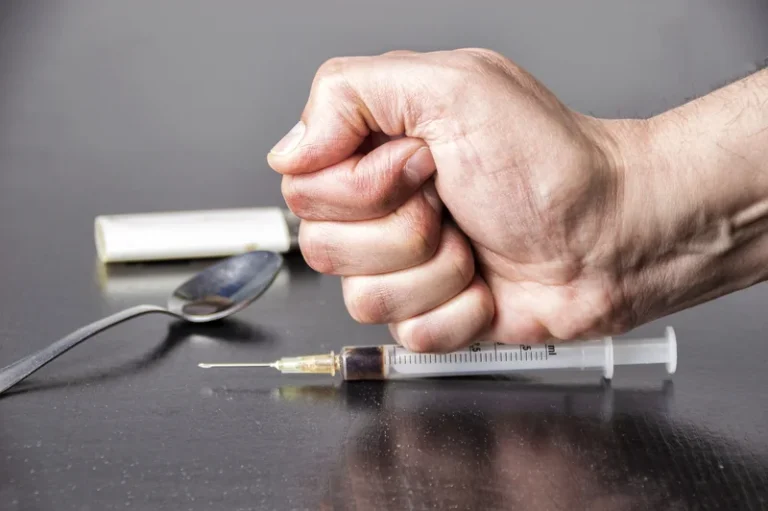
Because of the prevalence of alcohol use in college populations, this behavioral pattern may exert significant influence on the health of college dating relationships, thus warranting further examination. This article appears in a special issue recognizing the enormous contributions by G. Terence Wilson to the field of behavior therapy, and to this journal as its longtime editor. I am indebted to Dr. Wilson for his mentorship during my graduate training in his Alcohol Behavior Research Laboratory (ABRL). As a graduate student, I was struck by his near encyclopedic grasp of the behavioral alcohol research literature and his incisive skills regarding experimental design. I was most inspired, though, by his willingness to allow the data to inform our positions, even in cases in which new results did not support the findings of his earlier studies.
#5. Drinking Affects Your Sex Life
Alcohol can affect our mood for instance, making us more likely to get angry or even aggressive at our partner. It can also make you feel more tired and irritable, and you may find you’re more likely to argue with your partner when you’ve had a drink. Whether it’s when, where, or how much you drink, our drinking habits can have a direct impact on our relationships and the ones closest to us.
four or more drinks in one day or eight or more drinks per week for women
- 6See Sayette et al., 2001a for discussion of the pattern of data observed among the minority of participants in the study with a family history of alcoholism.
- It’s also a good idea to include several drink-free days, spread evenly throughout the week.
- One of the many complex aspects of alcohol use disorder is when codependency and alcohol misuse intersect.
- Your husband may pick fights with you when he drinks or you’re no longer as intimate as you were before.
- If you’re not sure where to start, you can check out Psych Central’s hub on finding mental health support.
If unpacking all of this on your own is causing excess stress or anxiety, consider asking an expert for help. If you have concerns about your relationship with alcohol, you might be wondering how to modify your drinking without stopping completely. The reason drinking can become a problem is because of how alcohol affects the brain. Get professional help from an online addiction and mental health counselor from BetterHelp. Unfortunately, studies consistently demonstrate that, regardless of the sex of the partner with AUD, if at least one person in the relationship has an AUD, the risk of DV is high. Infidelity is another factor that contributes to the quality of intimacy in a relationship.
Substance Use Treatment
Not only does infidelity break the bond of trust between partners, but it can also be a contributing factor to divorce. Research shows that individuals with AUD are more likely to engage in infidelity than those without AUD. Instead of trying to solve issues while under the influence, it’s OK to take a step back and address it at a later time, when you’re sober. If you’re not sure how much alcohol is too much, consider following the recommended Dietary Guidelines for Americans of 1 drink or less in a day for women and 2 drinks or less in a day for men. Alcohol can greatly increase the chance of aggressive behavior in some people and often plays a role in intimate partner violence.
- While social context has been considered in alcohol studies for many years (Pliner & Cappell, 1974; Wilson, 1978), only recently have paradigms been developed that apply theory and methods drawn from small groups research.
- Finances are about more than the dollars earned; they also include earning potential.
How do trees and green spaces enhance our health?
Social enhancement motives for drinking show the most consistent sex differences (e.g., Cooper, 1994), and rates of heavy drinking are elevated in all-male drinking groups and all-male social organizations (see Fairbairn et al., 2015a). Thus, social drinking paradigms might serve to reveal sex differences in alcohol reward sensitivity. Fairbairn et al. conducted tests examining the moderating impact of gender on alcohol’s socially rewarding effects using both acoustical and facial expression measures.

Rather, some researchers in the field of domestic violence postulate that the violent partner’s assaults are part of a pattern of abuse that is independent of alcohol consumption. Some individuals may use alcohol consumption to excuse their actions, but the blame is usually misplaced. Furthermore, alcohol is thought to influence aggressive behavior through detrimental effects on the drinker’s cognitive executive functioning and problem-solving abilities, narrowing the focus of attention and increasing their willingness to take risks.
2. Social processes
Wilson’s TRT research was influenced by several factors drawn from experimental psychology. He entered the alcohol field already an established leader in the burgeoning behavior therapy movement, and in particular he was a persuasive advocate for social learning theory (subsequently recast as cognitive social learning theory). From a https://ecosoberhouse.com/ social learning perspective, drinking offers a way of coping with life’s demands that can become maladaptive if excessively used (Abrams & Niaura, 1987). Like Marlatt (e.g., Marlatt, 1978), Wilson was interested in the theories and research of Walter Mischel (1968), and especially of Albert Bandura (e.g., Bandura, 1969; 1977; 1986).
- As stated above, keeping a distance is necessary to avoid enabling and ensure you don’t become emotionally dependent on helping them.
- Following drinking, participants completed a self-reported social bonding measure.
- Whether one partner drinks too much or both partners do, alcohol problems can lead to increased arguments, hurt feelings, and emotional distance in a relationship.
- General consensus suggests that your personality is a combination of persistent behaviors and dominant characteristics — such as your interests, emotional patterns, and inherent value system.
- For instance, Park, Sher, Todorov, and Heath (2011) found college/Greek involvement to predict increased risk of alcohol dependence, but only among students with at least one copy of the 7-repeat allele.
If you think you might be drinking too much, it could be time to make some changes as a couple – for the sake of your health as well as your relationship. Self-care can get thrown out the window in relationships with alcohol addiction. That’s why it’s important to help yourself first to provide the best possible support for your loved one. While you might think it selfish to distance yourself from a friend or family member, it’s essential to look out for your own well-being before you can help someone else.

Once you start to feel comfortable in social situations without a drink in your hand, the next step is to prepare yourself for people’s reactions. If your answer is “I’m not sure,” it might be time to take a step back and reflect on whether or not you’re happy with your how does alcohol affect relationships relationship with alcohol. On the other hand, you may use alcohol to try to manage the stress and challenging emotions that arise as a result of relationship troubles. Nearly a third of U.S. adults have a period of problem drinking at some point during their lives (1).

The studies suggest that certain individuals are particularly sensitive to alcohol’s socially reinforcing effects and possibly for different reasons. Certainly research is needed to continue to examine additional mediators and moderators. In critiquing the extant TRT literature, Wilson observed that much of the research to date had ignored cognitive expectancy factors. The cognitive revolution that swept across psychology in the 1970s had begun to influence psychopathology research, including addiction (see Sayette, 1999b; Tiffany, 1991; Wilson, 1987a).